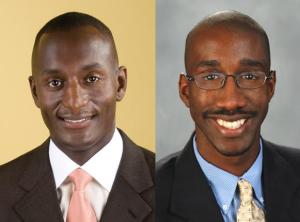Personal Diversity: A Game-Changer in the Workplace
The arguments for leveraging diversity have traditionally been applied to organizations, particularly corporations. We refer to this as organizational diversity. Computer maker Dell expresses its reasons for encouraging diversity in the following way (emphasis ours).
“By continuing to drive diversity initiatives throughout our organization, we harness each individual’s full potential, provide the best customer experience [by better understanding their needs], tap the best and brightest talent, improve our company’s results, become a better place to work, and further our global citizenship efforts in the many cultures we call home.”
The first step for companies that want to achieve these outcomes is to foster a more inclusive work environment that not only acknowledges and respects differences, but also celebrates differences and taps into them as a source of competitive advantage. Corporations, schools, nonprofit organizations, faith-based groups and other work, learning, and spiritual organizations, must be more receptive and more responsive to people of different backgrounds, including people of color, and view their differences as an asset not a liability.
But, what about “personal diversity”? What if we take Dell’s diversity goals and apply them to ourselves to provide a blueprint:
“By continuing to drive diversity initiatives throughout my personal and professional life, I harness my full potential, provide the best human experience by better understanding others’ needs, tap the best and brightest in others, improve my personal results, become a better person to know, and further my global citizenship efforts in the many cultures outside my home.”
The reality is that, at a personal level, we tend to associate with people who are like us or reflect our identity. We often trust others who have similar racial and ethnic backgrounds, grew up in the same or similar neighborhoods, attended the same college or training school and share with us affiliations like religion, fraternities or sororities, community organizations and professions.
And therein lies the challenge. Since most of us live and operate in environments where everyone looks like us, where you work may be the most diverse environment you see all day. Diversity programs often hope that more diverse work environments will benefit the world outside of the organization. However, if we don’t get out of our comfort zone and prioritize personal diversity in our everyday lives, organizational diversity will become a numbers game and not an effective way to leverage the talents of a diverse workforce. That’s changing the game!
Personal diversity may mean going out of your way to learn about people who are different than you. Ask yourself a question: what have you done to establish relationships inside and outside of work with people who are different from you? Remember, this difference could be along several lines including age, gender, ethnicity, religion, physical ability, sexual orientation, place of origin, ways of thinking and much, much more.
We are not suggesting that you have the most diverse personal and professional network. But we are suggesting that you have diversity within your personal and professional network. This will likely involve moving beyond your comfort zone to build meaningful relationships with people that are not like you. This places you in a unique and powerful position to then leverage personal diversity.
Leveraging personal diversity means operating seamlessly and naturally within many different contexts. You’re able to interact with different people more comfortably because you have a greater appreciation of their cultural norms. You’re able to work with different teams more productively as a result of previous experiences. You’re able to walk in different circles more effectively because you’ve done it before – even if the circumstances or context is somewhat different.
African Americans have always been called upon to “code switch,” that is, adapt their behaviors to cultures other than their own. In America, that has traditionally meant learning the game and playing the game of the majority, white culture. But in a global, diverse society, and in a United States where minorities are the majority, all will be increasingly called upon to code switch according to an even wider array of norms, standards and customs. You cannot succeed in America without having an appreciation of the diversity that is reflected in America. It’s not about “us” learning more about “them.” And it’s not even about “them” learning more about “us.” It’s about cultural reciprocity–creating a culture where everyone sees the value in learning more about one another.
Leveraging personal diversity is essentially a process, not a product. It is an ongoing, never-ending process by which awareness, understanding and connectedness to others enhances us. If we only talk about corporate diversity and don’t address the underlying issue of personal diversity we’ll never leverage the power of diversity.
The bottom line is this: we can’t just talk about organizational diversity without business leaders making personal efforts to diversify their relationships. Then and only then will diversity become an asset and not a liability.
No matter who you are, make personal diversity a priority in your life and you’ll benefit from it in your personal, professional, and community life. Personal diversity is a game-changer!

Randal Pinkett, PH.D. is the co-founder, chairman and CEO of BCT Partners, an information technology and management consulting firm. He was the season four winner of “The Apprentice.” He is co-author of Black Faces in White Places.
Jeffrey Robinson, PH.D. is a leading business scholar at Rutgers Business School. He is co-author of Black Faces in White Places.
Philana Patterson is a business news editor for the Associated Press. She is co-author of Black Faces in White Places.




